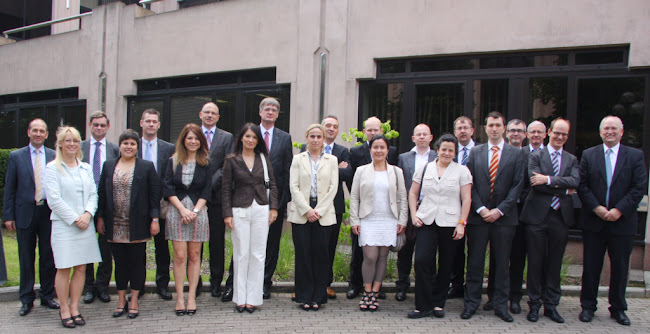The European Process Industry, through its newly-created Association SPIRE (A.SPIRE), has launched a public consultation on the strategic multi-annual research and innovation roadmap developed for the proposed SPIRE Public-Private Partnership (PPP). SusChem is a major supporter and contributor to the SPIRE initiative.
This public consultation is a unique opportunity for all interested parties to have their say on this initial 92 page, cross-sectorial research and innovation roadmap. The document provides the pathway for Europe to decouple resource consumption from human well-being and achieve increased competitiveness in the European process industry. The consultation process will run until 1 October 2012.
The consultation survey must be undertaken online but a pdf preview of the questions can be downloaded here.
The consultation on the proposed SPIRE PPP is also accessible via the European Commission’s Industrial Technologies webpage on Public Private Partnerships in Research together with other open consultations on current PPPs Factories of the Future and Energy-efficient Buildings.
What is SPIRE about? The realisation of SPIRE is essential in order to rejuvenate the European process industry and to ensure that economic growth is decoupled from resource impact – a key factor to enable sustainable economic growth.
The sectors, including the chemical industry, united in the SPIRE initiative represent a major part of the manufacturing base in the European Union involving more than 450,000 individual enterprises with over 6.8 million employees and generating more than €1.6 trillion annual turnover.
The cross-sectorial research and innovation roadmap produced by SPIRE provides the pathway for the European Process Industry to decouple resource consumption from human wellbeing and achieve increased competitiveness in the Europe. The roadmap is the result of an extensive process of collecting input from the eight process industry sectors actively participating in SPIRE, in consultation with other sectors such as glass, paper and pulp, and the European Commission through a provisional Ad hoc Industrial Advisory Group (AIAG).
The roadmap represents the collaborative efforts of public research and technology organisations and academia as well as industry stakeholders throughout Europe, along and across the value chain.
The SPIRE research and innovation roadmap was developed with two key resource and energy efficiency targets in mind and a time horizon of 2030:
- A reduction in fossil energy intensity of up to 30% from current levels by 2030 through a combination of, for example, cogeneration-heat-power, process intensification, introduction of novel energy-saving processes, energy recovery, and progressive introduction of alternative (renewable) energy sources within the process cycle, and
- Upto 20% reduction in non-renewable, primary raw material intensity compared to current levels, by increasing chemical and physical transformation yields and/ or using secondary (through optimised recycling processes) and renewable raw materials.
For both targets a full life cycle cost analysis is required to consider all effects along the value chain and to prove the sustainability advantage. In addition both targets will make a significant contribution to the political and societal objectives of drastic efficiency improvement in CO2-equivalent footprints of up to 40% by 2030.
Key components, key actions SPIRE will implement its research and innovation roadmap through six Key Components that are at the core for a resource and energy efficient process industry:
- Feed: Increased energy and resource efficiency through better preparation and product mix of raw materials, higher levels of alternative and renewable feedstock (including waste and waste water), as well as better managing increased quality variations in material resources.
- Process: Solutions for more efficient processing and energy systems for the process industry, including industrial symbiosis.
- Applications: New processes to produce materials for market applications that boost energy and resource efficiency up and down the value chain.
- Waste2Resource: Valorisation and re-use of waste streams within and across sectors, including recycling of post-consumer waste streams and new business models for eco-innovation.
- Horizontal: underpinning the accelerated deployment of the R&D&I opportunities identified within SPIRE through sustainability evaluation tools and skills and education programmes as well as enhance the sharing of knowledge and best practices.
- Outreach: Reach out to the process industry, policy makers and citizens to support the realisation of impact through awareness, stimulating societal responsible behaviour.
Key Actions have been developed for each Key Component, enabling an ambitious, realistic and measurable agenda driven approach towards fulfilling the SPIRE objectives and consequently achieving impact overcoming technological and non-technological barriers.
The SPIRE roadmap will be updated through an open and consultative process during the lifetime of the PPP to reflect progress as well as possible changes in priorities. You can take part in the initial public consultation by clicking the survey button below.









